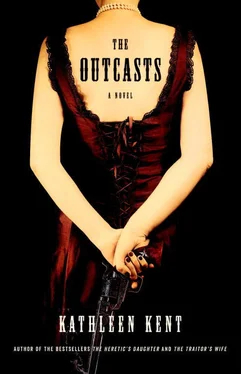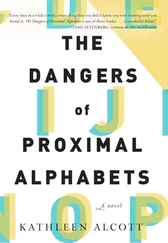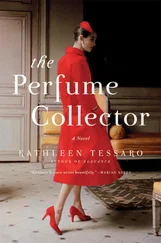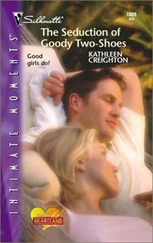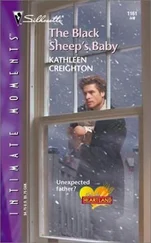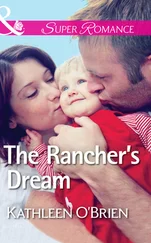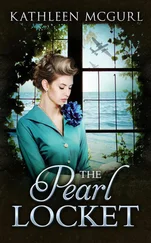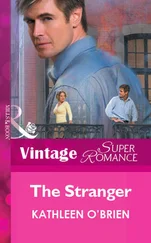Four hours later, the coach halted in Dallas and the driver handed his two passengers down, telling them they could rest for an hour, avail themselves of food and drink, while the horses and driver were changed. They were also told that for the next leg of the journey, the driver would be accompanied by a shotgun companion; there were as many gunmen on the road to Hillsboro, the driver said, as there were “teats on a wild boar.”
The doctor, who had not spoken a word to Lucinda for the whole of the time beyond the initial introductions, walked immediately to the public house nearest the coach. She watched him as he moved discourteously away and decided that he must be a Methodist, as a Baptist would have spent the greatest part of the trip staring at her bosom.
Taking in the sight of pine buildings, rawboned in their newness and smelling of turpentine, Lucinda crossed the rutted street opposite the coach, carrying with her the carpetbag. In the nearby dry-goods store she purchased a cheap muslin nightgown and a comb. She then walked to the McClintock, a modest hotel at the far end of the street, and paid for two nights. She paused for a moment, and then her lips curled and she signed the registry Mrs. Landry.
She ordered a cutlet and coffee to be sent to her room. When the meal came, she hungrily ate all of the beef, pushing aside what looked to be apples fried in lard. She finished her coffee, sipped at some water, and used the chamber pot. She laid the nightgown and comb on the coverlet and sat on the edge of the bed for a while, feeling almost well.
She pulled two letters from her bag, both sent to her through the post office in Fort Worth. The first note read Come to the Lamplighter when you are able. I will leave word. Ever Yours, by the hour… She smiled and covered the note with her fingers before returning it to her bag. The second letter she did not open, knowing the words by heart, but she let it rest in her lap for a while. It was the letter offering her the position of schoolteacher in a settlement called Middle Bayou. The job would pay twenty-five dollars a month, provide her with a room, and would no doubt be close to the edge of the world: crude, forlorn, and mosquito-infested. She would be astonished if she hadn’t contracted malaria within a few weeks.
Having replaced the second letter, she changed her gray suit for the lighter cotton dress she had packed and pulled on the stout walking boots and the shawl. She then picked up the bag and walked downstairs, where she informed the hotel clerk that she would be back after dark, as she was going to have supper with her brother. She strolled the few blocks to the coach and found two additional passengers, as well as the doctor, waiting for the new driver to take up the baggage.
Before she stepped onto the foot rail, she looked to the top of the coach, catching sight of the safety man seated on the driving board. He was cradling a double-barreled shotgun and leisurely smoking. He glanced at her, stubbed out the live ashes of the cheroot against the side of the coach, and gave her a mournful nod.
Once the coach got under way, the dust from the road followed them for miles. Lucinda pictured the German arriving in town after dark, his horse lathered almost to glue. He would look for her, eventually finding his way to the hotel. There he would bribe, or bully, his way into the room she had rented. Seeing the nightgown and comb, he would sit on the bed, hopefully for most of the night, waiting for her to return, his fists clenching and unclenching. She had cast off the heavy travel clothes as well, leaving them scattered about the room; the yellow boots she had reluctantly pushed beneath the bed.
The horse Nate rode out of Franklin on that morning had had a man’s weight across his back only a few dozen times. It was a three-year-old gelding, narrow in the body and neck, with an ill-defined head that would have signaled to the unknowing, or the inexperienced, that the animal himself was as bland as his conformation. In fact, he had been given up for the sausage cart, viewed as unreliable and intractable by the rangers of the westernmost outpost.
Nate knew from the beginning that he had been assigned the horse as a joke: a test for the newly sworn-in Texas state policeman from Oklahoma. The gelding had been yanked at, whipped, blindfolded, and hobbled in an attempt to break him to the saddle, to the extent that even a tightening belly cinch sent the animal into frenzied bucking.
When Nate saw the horse—head down, ears plowed backward, feet splayed—the first thing he did was remove the saddle, blanket, and bit, leaving only a lead rope around his neck. Nate stood by the gelding the remainder of the afternoon, occasionally feeding him a bit of grain and molasses, never looking directly at him, only following close as the animal grazed. The rangers, hoping for a show, had quickly gotten bored after the first hour and wandered away to see to their own affairs.
The second morning, Nate hand-fed the horse at regular intervals, touching him rhythmically in sweeping motions across his back and haunches, even removing his shirt to flag it gently across the horse’s line of vision. By midday there was not even a ripple of muscle across the gelding’s chest when another ranger passed by.
On the third day, Nate spent hours slipping the rope off and on the gelding’s head and neck, snaking it across his withers, even draping it around his belly, tightening it only enough for the horse to feel the pressure. He fed the horse more grain and molasses, and the animal began to follow him around like a dog.
On the morning of the fourth day, everyone in the entire ranger company who was not out on raid duty collected to watch Nate putting the blanket and saddle on the crazy gelding, who yielded quietly, even when the cinch was tightened. The onlookers braced expectantly for action when Nate put his foot in the stirrup, but he only leaned his weight across the saddle and then stepped down again. He repeated the action for half an hour before he fully seated himself. He touched his heels to the gelding, and the horse bucked forward but soon stopped and stood still, only his ears twitching. Nate got off and on the saddle a few more times, led him around by the bridle, got back on, and tapped the horse into an easy canter away from the post. He was gone for twenty minutes, and when he returned, the gelding was lathered but calm. The rangers who had stood around making bets that the horse would come back riderless gave him backhanded compliments and pressed him for information on how to subdue their own uncooperative and clod-footed mounts.
When the captain, a veteran ranger by the name of Drake, asked him how he was able to break the horse, Nate shrugged and told him that working with a horse was like raising up a child. “You build on trust and little tries,” he said.
At dawn on the fifth day, he was given the gelding, which would replace his own worn mount, and a commission to ride westward an hour distant to find two rangers in the field, Captain George Deerling and Tom Goddard, and bring them back to Franklin. A killer named William McGill had reappeared in Houston after some absence from Texas, to murderous effect. A man that Captain Deerling, for personal reasons—reasons Captain Drake did not elaborate on—had been chasing for years.
Nate rode west for more than two hours until he saw the irregular bands of gray smoke from a campfire and came upon three men seated together in a companionable arrangement, drinking coffee. If he hadn’t seen the leg irons on the man sitting in the middle, he wouldn’t have known which one was a prisoner and which ones were rangers.
The only one smiling was the ankle-bound man, his hair poking up in unruly spikes, as though he’d slept with a blanket pulled tight over his head. The rangers must have heard Nate coming from a long way off, otherwise they would have had their Colts drawn and cocked.
Читать дальше
